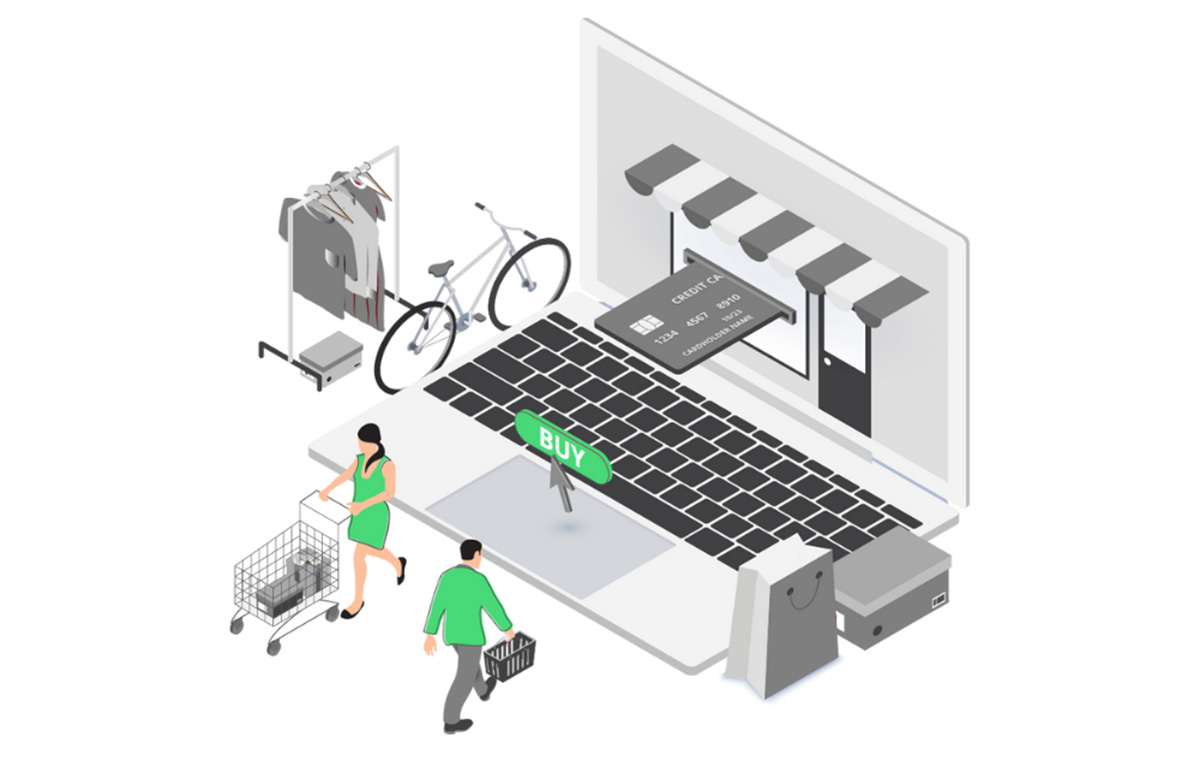Retail Marketing is the marketing tactic designed to make your customers feel emotions when they visit your store. From this premise, it becomes clear that the product with the best price-quality ratio is not always the best-seller. Emotions, brand loyalty, and previous experiences also come into play.
The goal of this type of marketing is to develop short- and long-term plans so that your customers feel satisfied with the shopping experience.
If you haven’t yet entered the world of online sales, now is the time. According to Forbes Mexico, the arrival of the pandemic and the decrease in social mobility led to an 81% increase in online sales throughout 2020. This tactic will remain relevant throughout 2022, as a high percentage of people who opted for this type of service will continue using it.
Sustainability in Retail Marketing
Throughout 2022, various advertising campaigns helped make consumers more aware of the products they purchase. This is achieved by making customers recognize the environmental impact of consuming certain products.
Consumers are increasingly interested in being part of environmental change, so eco-friendly products will become more relevant to them.
Social Media Presence
Social media is an essential component for brands today, with reports indicating that 53% of the world’s population is already on social networks. Social media platforms also provide opportunities for sales, as many have areas specifically designed to promote products and services.
Instagram and Facebook allow activation of the marketplace directly within their platforms. This is essential to showcase product catalogs to users, allowing them to discover your brand and find the products they want.
Physical Shopping Remains Relevant in Retail Marketing
During 2020 and much of 2021, people were confined at home. Despite the growth of online platforms, consumers still seek unique experiences when shopping in physical stores.
Pick-Up Service
People are more connected to technology than in previous years. In addition, the convenience of having purchases delivered directly to homes created a new need to save time while shopping.
However, people are eager to go out, so pick-up services are an important strategy. These services allow customers to make purchases via their mobile phones and collect them at the store.
This service can be combined with different pricing strategies. For example, encouraging customers to pick up their orders in-store in exchange for free shipping or discounts. Highlighting the eco-friendly value of in-store pickup is also a benefit, as it reduces the need for delivery vehicles that contribute to pollution.
New Payment Systems in Retail Marketing
Technological advances have enabled new payment methods. Customers no longer rely solely on cash and have a wide variety of options. New payment methods such as cryptocurrencies and Bizum have arrived to stay, making customers prefer stores that offer multiple ways to pay.
Delivery Service
As online shoppers, we are accustomed to receiving products whenever and however we want. Therefore, a reliable delivery service with fast shipping, tracking availability, and efficiency is essential to retain customers. User experience comes first.
These are some of the retail trends that will continue in 2022, driven by new practices and lifestyle changes influenced by the pandemic.
The 4Rs of Retail Marketing
We’ve discussed retail marketing trends in 2022, but there are principles that never change.
The 4Rs are key elements to always consider in your online and physical store. Take note—they are not trends and should always be taken into account.
Relationship
It is essential to build interaction with your customers, whether through in-store staff or social media. The brand must connect with its consumers, with the primary goal of ensuring satisfaction so that customers return in the future.
For this, it is crucial to understand and know your customers closely, identify their needs, provide the solutions they require, and offer an exclusive shopping experience.
Customer service tactics, content marketing, and brand presence at events and in media yield excellent results. This helps your brand remain in the top-of-mind awareness, so that when a customer needs a product you sell, your brand is the first that comes to mind.
Relevance
Customers should feel like an essential part of the brand’s growth and success. Gathering tips and feedback from your own customers is an effective tactic for increasing relevance.
However, this should be done in moderation to avoid overwhelming them and creating the opposite effect. Instagram surveys, showcasing customer experiences, or displaying awards won by customers are ways to highlight your clients’ importance.
Reward
How can you reward your customers while gaining benefits for your brand? Common approaches include loyalty cards, coupons, or point programs. Customers feel valued, and your brand benefits from increased sales and repeat business.
Cost Reduction
To achieve the desired results, it is essential to monitor the ROI (return on investment). Knowing what is invested in attracting new customers allows you to measure the exact net benefit.
To save costs, consider reducing human resources by automating processes.
These are the key retail marketing strategies for 2022. If you have an ecommerce business and need help with your website, marketing, or content strategy, contact us or call us. We are an ecommerce agency specializing in digital marketing. We will analyze your case without obligation and help you achieve results.



